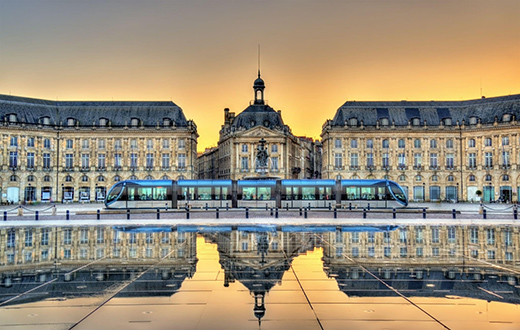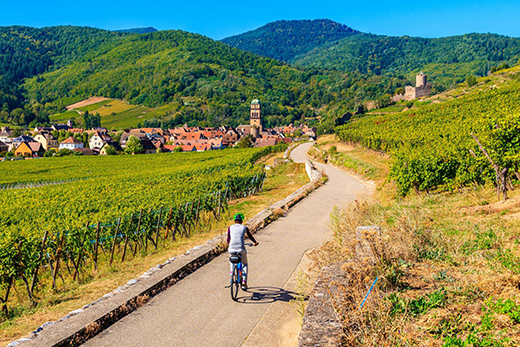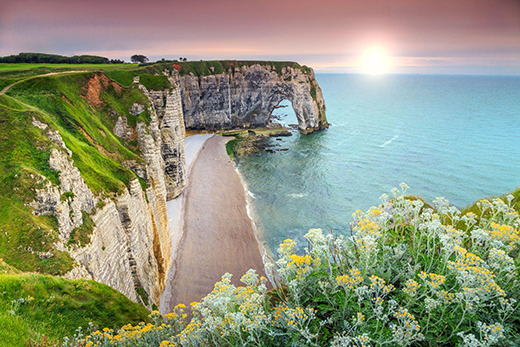Neha Mehrotra
With India ranking among the top 15 source markets for France, the country continues to maintain its enduring appeal as a premier global travel destination. Renowned for its wine, croissants, fashion, and lifestyle, which revolves around “être”—being in the moment—a multitude of both new and returning travellers flock to experience the carefree yet culturally enriching way of life that France offers. What is it about this European gem that continues to mesmerise travellers time and again?
We get in a conversation with Sheetal Munshaw, Director of Atout France, India office, to find the answer and gain her insights on what France has to offer to tourists, especially Indians, in the coming times and what’s the best way to experience the French joie de vivre.
1. How important is the Indian market for France?
Sheetal Munshaw: India is among the top 15 markets in terms of visitor arrivals for France. Outbound tourism from India towards France has seen a strong rebound post-pandemic, particularly in the sectors of incentives and weddings. France has hosted four high-profile weddings between 2021 and 2023, particularly in Paris and in the south of France. FIT travel has also seen a surge, with numbers close to pre-pandemic figures. In 2023, an approximate 549,770 Indian tourists visited France (source: Oxford Economics).
2. What are some of the unique attractions and landmarks that have proven to be particularly appealing to Indian tourists?
Sheetal Munshaw: In addition to classical sightseeing experiences and world-famous monuments, over the last few years, there has been a consistent increase in the demand for offbeat experiences and destinations. Indian visitors are more and more keen to discover Paris differently and beyond when on holiday in France. There has been a continued interest in wine tourism, self-drive holidays, shopping expeditions, and adventure activities, to name a few. The Indian traveller is also keen to explore France in its authenticity and diversity and discover different regions, cultural and gastronomical experiences, and immersive learning experiences when they travel to France.

Some of the regions that have gained prominence are Auvergne, the Rhone Alpes, Grand Est (Alsace and Champagne), Deauville in Normandy, Lourdes and Toulouse, and Occitanie at large. Of course, the French Riviera, but also Provence and its gems of Aix en Provence and Luberon, the Loire Valley, and Burgundy. An overall interest in France as a whole, including its versatility of landscapes, seems to appeal to the Indian traveller.
3. Could you share some insights or initiatives undertaken to enhance the overall experience for Indian travellers visiting the country?
Sheetal Munshaw: Our promotional activities are multi-pronged and include engagements and collaborations with the trade and the media. Our regular scope of activities includes our annual B2B Workshop Explore France, our flagship event, media and agent familiarisation trips to France, the participation of Indian agents at several thematic workshops in France, and B2B and B2C campaigns, amongst others. In the recent past, we also launched a multi-market e-learning programme called “France Connaisseur” that received an enthusiastic response from the Indian travel trade. Our endeavour is to familiarise the French travel professionals with the specificities of the Indian clientele and to better equip ourselves to receive our Indian guests. Specific initiatives are undertaken to generate awareness about consumer behaviour and expectations and showcase our offerings in accordance. On the logistical front, visa facilitation has always been a very key element, and our network with the Embassy and consular services is seamless and aligned to better facilitate travel to France.
4. What steps are you taking to make France a sustainable destination?
Sheetal Munshaw: France is taking action by rebuilding and reimagining tourism with sustainability at its core. The country is steadfast in its commitment to making eco-friendly travel inclusive and affordable. France boasts an extensive 27,000-kilometre railway network, offering travellers the perfect opportunity to explore the country’s wonders in a swift and eco-friendly manner. Our national carrier, Air France, is actively involved in championing the cause of sustainable travel, and in this regard, Air France is actively involved in the development of alternative fuels known as sustainable aviation fuels, or SAF. The SAF that Air France purchases reduces CO2 emissions by at least 75% (on a life-cycle basis) compared to conventional fuels.

Sustainability is also at the heart of the dining experience. Restaurants across the country are embracing eco-friendly practices, serving up locally sourced seasonal delights, and minimising food waste. Their efforts have been recognised by the prestigious Michelin Green Star, introduced in 2020, which holds 89 French establishments accountable for their ethical and environmental standards. Sustainability is also making its mark in the world of wine. Organic wines are gaining popularity as vineyards embrace eco-conscious production methods. Embracing the ‘Farm to Fork’ concept and zero-waste philosophy, France is reclaiming traditional, planet-friendly practices, creating a greener, delectable tomorrow.
France’s hotels are undergoing a transformative shift towards sustainability. From staff training in energy-saving to waste management measures, these establishments are going green like never before. Imagine staying in a hotel that rejects single-use plastics, serves local produce, and even provides bikes for guests’ use. Over 190 French accommodations boast the EU Ecolabel, while 640 proudly wear the Green Key initiative badge, setting the bar high for responsible travel.

France cherishes its vibrant outdoors, boasting 11 national parks, 54 regional parks, and 47 ‘Grand Sites’ attracting 32 million visitors a year. Protecting 16.7 million hectares of lush forests, including the National Forest Park in Burgundy, is a top priority. In the majestic mountains covering 25% of the country, ski resorts like Chatel and Chamonix-Mont Blanc champion sustainability with the ‘Flocon Vert’ label, reducing CO2 emissions through renewable energy use. Amidst climate change, mountains experience year-round tourism, offering a fortune of eco-friendly experiences. From lush parks to snowcapped peaks, nature’s oasis thrives, inviting travellers to cherish and preserve the green heart of France.
5. Lastly, what’s next?
Sheetal Munshaw: France will soon be in the spotlight, as it will play host to the Olympic and Paralympic Games this July–August. 2024 also marks 80 years of the D-Day landings and 150 years of the Impressionist movement. It is an eventful year for the destination and we are encouraged to believe that these events will motivate the Indian visitor more than ever to explore France in 2024.












